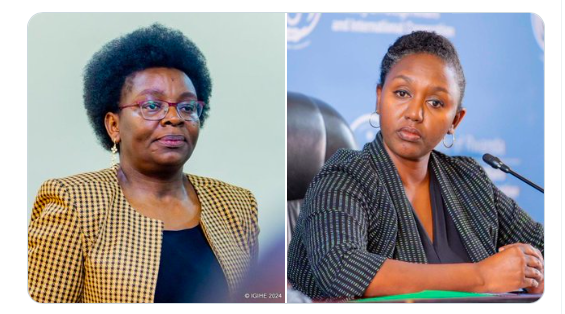On March 13, 2024, the High Court in Kigali, Rwanda, made headlines when it declined to review a request by opposition politician Victoire Ingabire to have her previous convictions overturned, thus barring her from participating in the upcoming July 2024 elections in Rwanda. This decision has ignited discussions about the independence of the Rwandan judicial system and raised concerns over the role of the government in judicial processes.
The controversy intensified following statements made by the Rwandan Government’s spokesperson, Yolande Makolo, on the social media platform X. Using a screenshot from an article by The Guardian, Makolo critiqued Ingabire’s legal challenge and her eligibility to participate in the political process. Makolo stated, “Victoire Ingabire is neither an opposition leader nor a defender of democracy. She is an unrepentant criminal who was convicted for plotting to overthrow the government through violent means, and attempting to reignite ethnic division in Rwanda. Thankfully, Rwandan justice has once again upheld the rule of law.”
These remarks by Makolo have sparked a wave of skepticism and concern among human rights organizations, opposition groups, and observers of Rwandan politics. Critics argue that the government’s narrative and the judicial outcomes reflect a broader issue of judicial independence in Rwanda. They suggest that the judiciary may not be operating independently of the government, particularly in cases involving political figures or dissenting voices.
The background of Victoire Ingabire, who was convicted of charges related to terrorism and threatening national security, has been a focal point in discussions about political freedom and the space for opposition in Rwanda. Ingabire’s case has been controversial, with her supporters claiming that her prosecution was politically motivated to prevent her from challenging the ruling party, the Rwandan Patriotic Front (RPF), led by President Paul Kagame.
The current discourse surrounding the independence of Rwanda’s judiciary and the government’s influence over legal proceedings is critical. It not only affects the perception of democracy and justice in Rwanda but also raises questions about the broader implications for political dissent, freedom of speech, and the rule of law in the country.





























































